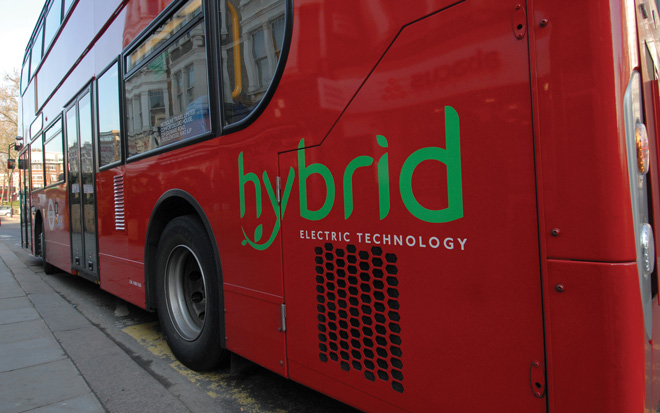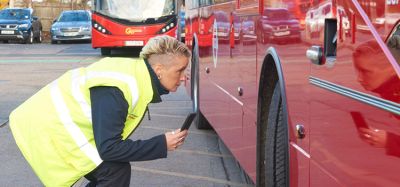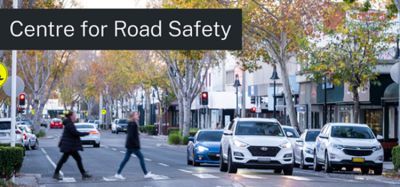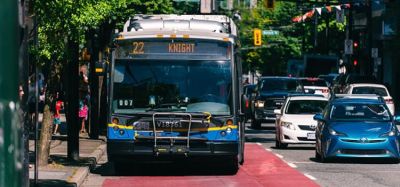Urban Transport Group: The voice of UK urban transport
- Like
- Digg
- Del
- Tumblr
- VKontakte
- Buffer
- Love This
- Odnoklassniki
- Meneame
- Blogger
- Amazon
- Yahoo Mail
- Gmail
- AOL
- Newsvine
- HackerNews
- Evernote
- MySpace
- Mail.ru
- Viadeo
- Line
- Comments
- Yummly
- SMS
- Viber
- Telegram
- Subscribe
- Skype
- Facebook Messenger
- Kakao
- LiveJournal
- Yammer
- Edgar
- Fintel
- Mix
- Instapaper
- Copy Link
Posted: 20 June 2016 | Jon Lamonte, Chair, Urban Transport Group | No comments yet
The launch of the Urban Transport Group in early-2016 represented far more than a rebrand from its former name, pteg (the Passenger Transport Executive Group). It demonstrates the significance of changes over the past five years in transport responsibilities and governance in the UK’s major city regions. Chair Jon Lamonte explains what the changes mean and how the Urban Transport Group will move forward as the voice of urban transport in the UK…


During the past five years the core tasks of the Passenger Transport Executives (PTEs) expanded from developing passenger transport services for the largest city regions to creating holistic urban and regional transport systems which are at the heart of a wider agenda to drive economic growth and higher quality of life.
This shift could be seen in the formation of the country’s first Combined Authority in Greater Manchester in 2011 whose powers were subsequently enhanced by a series of devolution deals with central Government. This process has been replicated in other city regions and is now being taken to the next level with the creation of Mayoral Combined Authorities for which the first round of elections are due in May 2017. As part of this ongoing process the status, role and name of the PTEs has also changed. Some have been abolished as separate legal entities, others have been rebranded – but all are now working closely with their Combined Authority to ensure that transport planning is fully embedded within wider social, environmental and economic plans.
As well as marking the way in which the major city regions outside London are changing, the rebranding as Urban Transport Group also saw Transport for London (TfL) joining us as full members which strengthens the network immeasurably and means that we are now truly the voice of urban transport in the UK.
The rebrand also reflects the expansion of our role into a body that looks beyond public transport to encompass a far wider portfolio including freight, logistics, cycling, walking, air quality and highways. This expanded remit takes us from PTEs to a new level, shifting from public transport to mobility and place-making, focusing on all modes and on how we can shape urban areas that people want to live, work and invest in.
As a network we have always focused on three roles but now, with the right name and with TfL on board, we are able to do more in each of these. Firstly we are the network for urban transport professionals working in the public sector. We help our members do more for less through co-commissioning rather than each of our member organisations commissioning similar work separately. We have done this in a host of areas – including on concessionary fares, modelling future bus demand and passenger opinion surveys. The savings that accrue from joint working cover the subscription costs of being part of the network many times over. We also run a range of working groups covering both overarching issues like finance and planning but also specific policy areas like bus, rail and organisational development. A members-only section of our website1 provides additional benefits including ‘Insight’ – hosting datasets and indicators which allow our members to compare performance and identify key trends.
Our second role is to make the case for urban transport and, in particular, for adequate funding and for the powers and tools needed to ensure that our cities can support inclusive and sustainable economic growth. In making the case, we do not argue for funding for transport for transport’s sake but in terms of what that funding can do for our cities. For example, our work on the economic case for bus sets out in detail how every pound of public support for bus services supports multiple policy objectives. The bus enables access to work, reducing the costs associated with unemployment. It cuts costs for the health service by, for example, helping to improve air quality, connecting people to healthcare appointments and promoting independent living. It gives young people access to education and training. It opens up new development sites. It replaces car journeys thus benefitting all road users and the wider economy through reduced congestion. By arguing this wider case for the bus we have been successful in ensuring the survival of the main government subsidy flow for bus services.
Our third role is to provide thought leadership for the wider sector, looking beyond the immediate and the day-to-day to examine and reflect medium- and long-term changes and challenges that our members face. For example, our report on ‘Total Transport’ looked at the opportunities for more effective use of scarce public funding through pooling transport budgets and vehicle fleets where at present healthcare, social services and education departments all run their own separate transport operations alongside regular public transport provision. We recommended pilots to look at the potential. Government took up both the idea and the name ‘Total Transport’ and the pilots are now underway. Our Horizon Scanning report on the implications for urban transport policy of transformative technological and social change has also been well received as the first report of its type to look at everything from Uber to an aging population, and from the rise of the smart device to connected and autonomous vehicles – from a public policy perspective.
As the UK’s voice of urban transport we are also international in outlook. This is because there is increasing convergence around the world on both the transport problems that major cities face and the solutions they are adopting. From Paris to New York and from Manchester to Berlin, the same imperative is emerging that cities need to be well connected but also have an attractive urban realm, cleaner air and smarter public transport systems. Cities can learn from each other how best to achieve these goals which is why we are active in international networks like UITP.
As the Urban Transport Group we are well placed to engage with the Government’s accelerating devolution agenda including new buses legislation which should allow the first wave of Mayoral Combined Authorities to introduce the franchising of networks of bus services in the same way that London already does. As well as offering a far simpler route to franchising, the legislation also aims to provide all transport authorities with new tools to get the most out of the existing deregulated framework. The legislation could represent a massive breakthrough for transport in the city regions outside London giving them the powers to plan and oversee their bus networks including simple, smart ticketing that is ready for the future and integrated with other modes. With air quality going up the political agenda, it will also mean that transport authorities can specify the right buses for the job of contributing to cleaner air.
The Buses Bill sits alongside Government moves to devolve more responsibilities for local rail services, opening up the potential for rail, light-rail and bus services to be planned in a way that is more efficient, effective and integrated. Recently, the franchise for rail services in the North was let by a new body – Rail North – which brings together local transport authorities from across the North with the Department for Transport (DfT). The intention is that this is a stepping-stone towards full devolution. It builds on the runaway success of rail devolution on the self-contained Merseyside electric commuter network, London’s ‘Overground’ and ScotRail. In all three cases devolution led to rising investment, performance, patronage and customer satisfaction. Alongside Rail North, a similar process is now underway on devolution of rail services in the West Midlands as well as the extension of the TfL brand and oversight to more of the London commuter network.
Smart ticketing offers the opportunity to bind currently disparate public transport systems together and all Urban Transport Group members are bringing forward smart ticketing with more passengers benefiting every week. At the same time the pace of transformative technological change means the world is shifting beneath our feet. But by working together we are better able to respond effectively including through joint working on smart ticketing and on mobility as a service.
These are exciting times for us as a network. We have a stronger consensus than ever before around the key importance of investing in transport as a way of underpinning economic growth and contributing to making our cities the greener, smarter and inclusive places that people increasingly expect and want to live and work in. The agreement on the benefits of devolving more powers is also robust, with greater devolution on both bus and rail offering the potential for fully integrated transport networks. Through working together as Urban Transport Group and with colleagues in counterpart city regions around the world, we can also learn from each other about how to make the most of these opportunities to grow our economies and make people’s lives better.
Reference
Biography
Jon Lamonte is Chair of the Urban Transport Group and Chief Executive of Transport for Greater Manchester (TfGM). His portfolio covers rail, bus, tram, highways, cycling and other forms of active transport. He contributes to the broad community in Greater Manchester through his role with the Wider Leadership Team comprising of Chief Executives of the districts, Chief Constable, Chief Fire Officer and New Economy. Jon was the CEO of Tube Lines from 2011-2012, including the critical period of the London 2012 Olympic and Paralympic Games. Jon joined from the Royal Air Force where he fulfilled a number of senior operational roles and led major project delivery. His most recent role was Chief of Staff, Strategy, Policy and Plans, which included co-leading the strategic defence and security review into the maritime programme for the Ministry of Defence (MoD). Prior to this Jon was Director General Finance for Defence Equipment and Support, the MoD’s £17 billion-a-year procurement and logistics organisation. Other roles included running the RAF’s largest base, Brize Norton, with over 4,500 people and three fleets of transport and air-to-air refuelling aircraft. He served in the Falklands, Iraq and the former Yugoslavia. An active member of the Institute of Directors, Jon has strong experience in leading change, driving efficiency and motivating large workforces. He achieved a PhD in History from Birmingham University in 2011.
Related topics
Business Models, Fleet Management & Maintenance, Multimodality, Public Transport, Ticketing & Payments, Transport Governance & Policy
Issue
Issue 3 2016
Related organisations
Urban Transport Group








